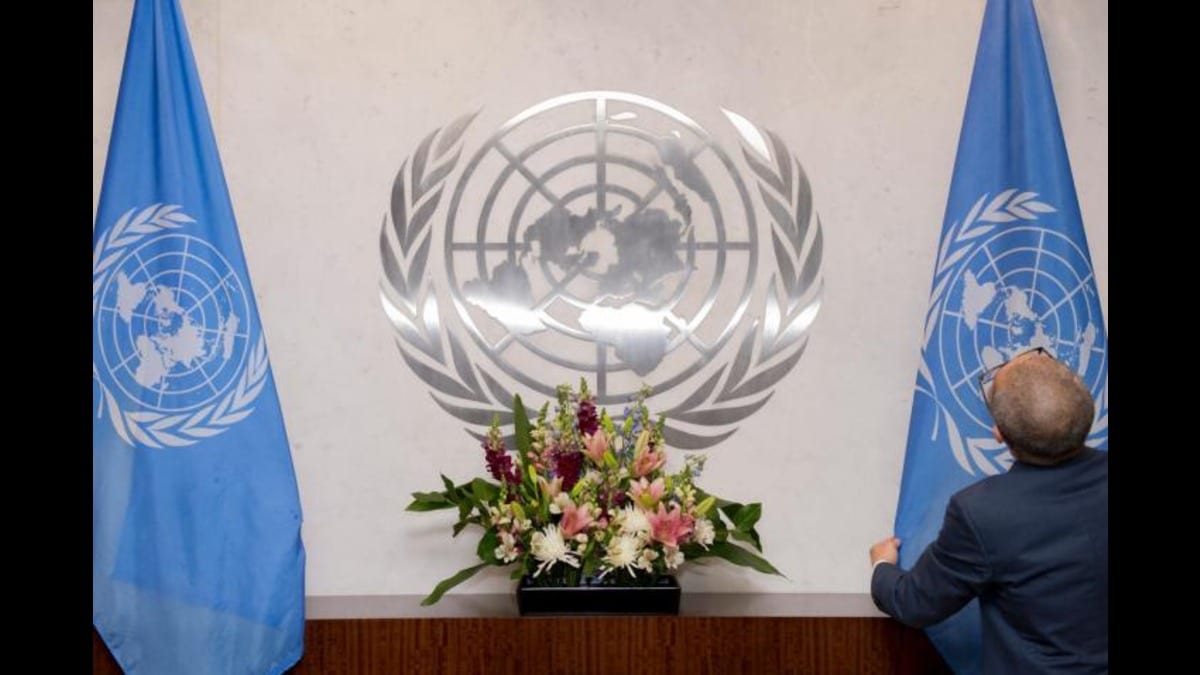Regarding the alleged recruitment and use of boys by armed groups in J&K and the arrest, death, and maiming of those boys by security forces, the United Nations Secretary-General has removed India from the list of nations listed in a report on children and armed conflict. First time since 2010 that Nigeria, Pakistan, the Philippines, Burkina Faso, Cameroon, the Lake Chad basin, and India have not been included in the study.
In his report on “Children and Armed Conflict,” UN Secretary-General Antonio Guterres stated that due to the government’s actions to “better protect children,” India has been “removed from the report in 2023.” The introduction of different policies and institutional modifications since 2019 is what made this possible, according to Ministry of Women and Child Development officials on Wednesday.
According to a public announcement, Smriti Irani, the union minister for women and child development, oversaw the development of the road plan by the Ministry for cooperation and collaboration on child protection concerns. Following a 12-year period, having India’s name removed from this list is a significant accomplishment for India, according to WCD Secretary Indevar Pandey, who has been in continual contact with the UN on the subject. In earlier times in J&K, many of the systems simply did not exist.
“The juvenile homes there were not operating correctly, and the Juvenile Justice Act was not applied. Since then, more infrastructure has been developed, including Child Welfare Committees, Juvenile Justice Boards, and Child Care Homes,” according to Pandey.
According to the report of the UN Secretary-General:
In my previous report, I expressed my appreciation for the Government of India’s cooperation with my Special Representative and emphasised that this cooperation might result in India’s removal from the list of worrying countries. According to Guterres, “India has been removed from the report in 2023 because to the steps the Government has taken to better protect children.
Many of the UN’s suggested actions have either been taken or are in the process of being taken, according to Pandey. We have given security personnel training in child protection. Pellet guns have already stopped being used. The JJ Act and POCSO Act are also being put into effect.
In a statement, the Ministry claimed, “The Government of India had been persistently engaged in efforts to eliminate our nation’s name from this ignoble list. An inter-ministerial meeting in November 2021 “led to an agreement to accelerate the Government of India’s ongoing engagement with the Special Representative of the Secretary General (SRSG) and to appoint a national focal point to identify priority national interventions to enhance protection of children, as well as a joint technical mission to hold inter-ministerial, technical-level meetings with the UN to identify areas of enhanced cooperation for child protection.”
The SRSG office’s technical staff reportedly travelled to India from July 27 to July 29 of 2022, according to the statement. The Ministry of WCD, along with the Ministry of Home Affairs, the J&K government, and other partners, sponsored a workshop on boosting child safety in J&K in November 2022. The United Nations was also present at this event.
The Juvenile Justice (Care and Protection of Children) Act of 2015 has established all statutory service delivery mechanisms, such as the Child Welfare Committee and Juvenile Justice Boards. India has been dropped from the report in 2023 due to the steps the government has done to better protect children, the Ministry of Foreign Affairs announced.


